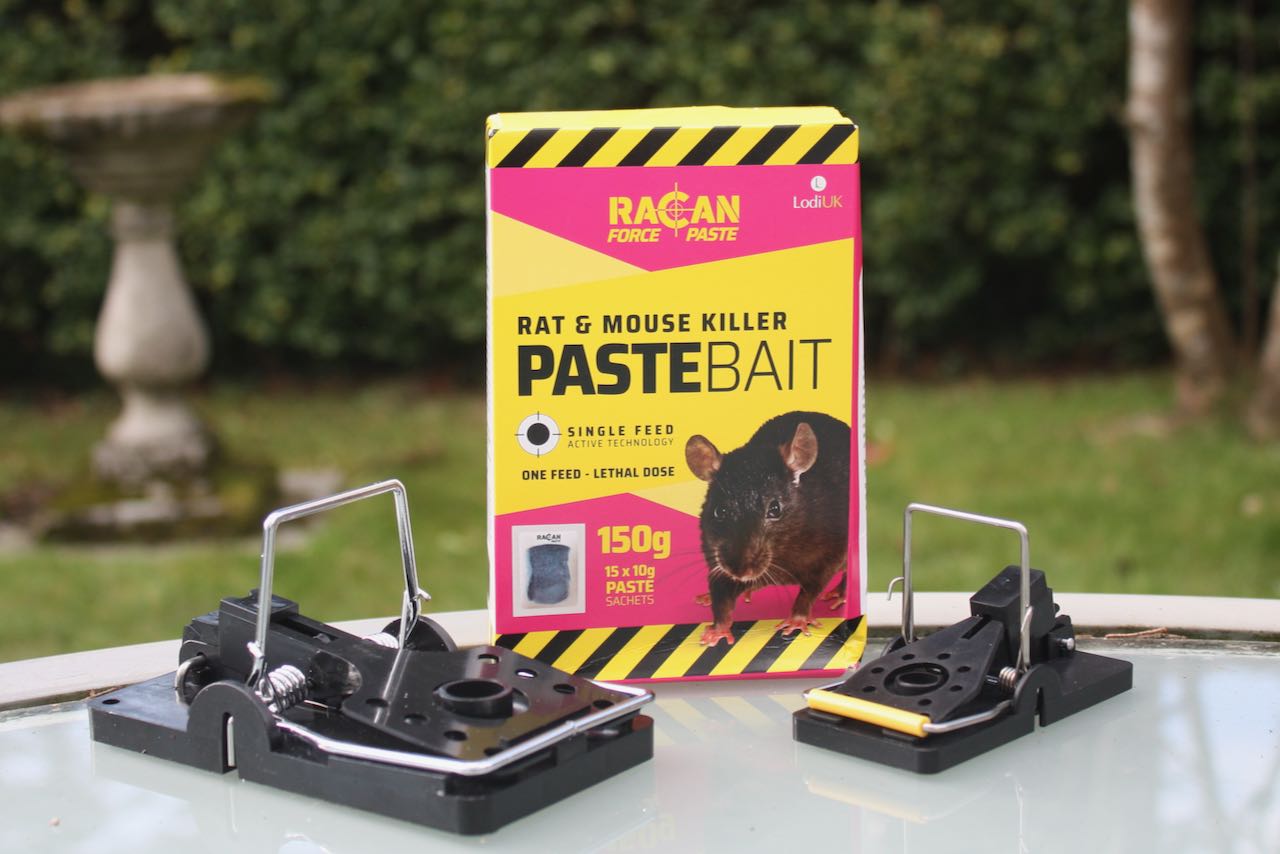You have two main options when dealing with a rodent infestation: should you use traps or poison? Which one is best?

Introduction
The choice between traps or poison depends on your specific situation and personal preferences. The decision-making criteria are listed below, and against each, I have added my recommendation of which performs best.
- Efficiency (speed of esolution) – poison
- Safe use around pets – Traps
- Ease of use – Poison
- Visual progress – Traps
- Avoid handling dead rodents – Poison
- Risk of bad smells (decaying rodents) – Traps
In this Blog, I will expand on each of these points. You will then be equipped with the necessary information to decide which is best for you and your circumstances.
To be clear, when I talk about traps, I specifically mean spring-loaded ‘snap-traps’ designed to kill rodents instantly. I would certainly never use or recommend the use of water traps where the rodent drowns. Or worse still, glue traps where the rodent can be left to die of thirst.
Efficiency
It takes a while for poison to enter the rodent’s bloodstream, and by the time it starts to take effect, they will no longer associate it with the bait they have eaten. Also, other rodents will have no warning that the poison bait is just that and not a ‘free meal’ left by the kind homeowner.
On the other hand, when a trap goes off, all the other rodents in the vicinity will scatter. It will then take time for them to feel comfortable enough to return. As mice tend to congregate in large groups, this is particularly relevant. Less so for a single rat entering a bait station.
Safe Use
Clearly, you must always be careful that you place any traps or poisons out of the reach of children or pets. And it is even more important to do so in the case of rats, where more powerful poisons and traps are necessary. But bear in mind that these, when used outside, should always be placed in a bait station.
Nevertheless, if you have any concerns about accidental contact with poison, your safest option is to opt for traps.
Ease of use/Effort
With poison, you can almost ‘set and forget’ just coming back every few days to check on the bait and replenish if necessary. My father owns a caravan, and every year I lay down mouse poison for him before it goes into winter storage. This a clear example of ‘set and forget’ that would not work with traps.
It can be trickier to be successful with traps as they require regular checks for dead rodents and then re-baited and reset.
Visual Progress
Are you the type of person who wants to see the results of a treatment? If so, then the choice has to be traps. You have no idea where a poisoned rodent will take itself to die.
On the other hand, you may not want to see (and handle) a dead rodent. In this case, your choice would lean towards using poison.
Risks
Finally, some risks that you should add to your decision-making.
Dead Body Smell
With traps, it’s simple: you pick out the dead rodent and dispose of it in the general waste. However, with poison, while it is less likely that you will have to come into contact with the dead rodent, there is no telling where it will die. If it happens in a wall cavity or other inaccessible space, there is no way to retrieve it.
In the worst-case scenario, the smell of a rotting rodent could permeate your home. However, in my experience, this is quite rare and probably only occurs in 1 in 10 internal rodent treatments.
Secondary Poisoning
Secondary poisoning is when a mammal ingests rodenticide from eating a poisoned rodent. However, with current rodenticides, the active ingredients are limited, and the risk is minimal. Also, by the time the poison has killed the rodent, most of it has already dissipated. A good mouse poison, for example, is very targeted, and the quantities consumed by an individual will have little effect on any larger mammals. However, if you are concerned about the potential of secondary poisoning, opt for traps.
Conclusion
As a pest control professional, I have a clear preference for poison. My bias, however, is based on efficiency (getting the job done as quickly as possible) and effort (minimising the number of visits). In fact, it is the only way I can guarantee a successul outcome. Only when concerned about the safety of children or pets would I opt for traps instead of poison.
Nevertheless, you should consider your priorities and discuss these with your pest control professional. Maybe you would prefer to sacrifice the efficiency of poison to eliminate the risk of foul odour.

